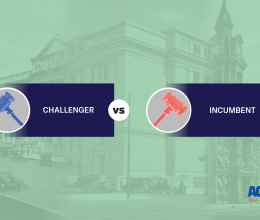COLUMBUS- Today, the American Civil Liberties Union of Ohio released a new report called “Reform Cannot Wait: A Comprehensive Examination of the Cost of Incarceration in Ohio from 1991-2010.” The report is a survey of two decades of studies that document ineffective policies, inefficient us of funds, and racial unfairness related to the state’s criminal justice system. At a press conference today, State Senators Bill Seitz (R-Cincinnati) and Nina Turner (D-Cleveland) joined ACLU of Ohio Legal Director James L. Hardiman and ACLU of Ohio Executive Director Christine Link in calling for reform.
Link said, “Ohio is at a crossroads. The state must find a way to cut costs and balance its budget without endangering the needs of its residents. For decades, respected experts and academics have warned that officials were wasting resources by focusing on incarceration, which does little to prevent crime and drains funds from other programs that have been proven effective. We must turn away from policies that neither protect us, nor ensure fairness.”
Copies of the report were distributed to the Budget Planning and Management Commission, a bi-partisan group of six state legislators charged with forging a plan to deal with the state’s anticipated budget deficit.
The report notes that Ohio prisons are currently over 133% capacity and the annual budgets of the Department of Rehabilitation and Correction and Department of Youth Services account for a combined $1.8 billion. The state’s prison population has quintupled since 1975; however, this increase is due to harsher sentencing laws rather than higher crime rates or a larger population.
In addition to the data presented in the report, the ACLU also highlights two Ohio bills that would be a step towards reform. Ohio Senate Bill 22 would help reform some mandatory minimum laws, create more funding for community corrections, and allow prisoners to earn time off their sentences for participating in educational programs. Ohio House Bill 235 addresses the juvenile justice system by eliminating mandatory sentence enhancements and allows judges additional discretion when determining if a juvenile should be tried as an adult.
“Ohio needs reform, not another study. The current fiscal reality is a tremendous opportunity for state officials to make our criminal justice system more fair and efficient,” concluded Link. “While ‘tough on crime’ policies are often embraced by politicians, now is the time for courage to embrace ‘smart on crime’ reforms that use our limited resources wisely and have been proven more effective at deterring crime.”









